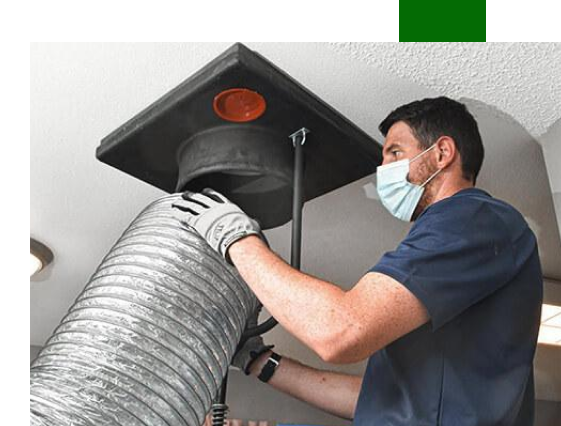Perfect—we’re all set. Every single instruction is clear and locked in: from the keyword placement and natural integration, to the 7th-grade tone, storytelling approach, presentability structure, and smart use of internal links with different anchor texts that match the context. We’re going to create a fully humanised, SEO-optimised blog post that’s easy to read, packed with value, and 100% original.
Give me a moment to craft this content for you.
How Ergonomic Chairs Improve Posture and Comfort
We’ve all been there—sitting for hours, adjusting and re-adjusting, hoping to find that sweet spot where our back doesn’t ache, our neck doesn’t feel stiff, and our legs don’t fall asleep. The truth is, regular chairs just don’t cut it when it comes to long hours at a desk or even relaxing at home. That’s where ergonomic chairs step in—and once you sit in one, it’s hard to go back.
Let’s talk about how ergonomic chairs improve posture and comfort in a real way that you can actually feel.
Imagine this: you start your workday feeling great, but after lunch, your back starts to complain. You shift in your seat, stretch your neck, roll your shoulders. But nothing really works. What’s happening here is your body is fighting against a poor seating position—something ergonomic chairs are designed to fix.
Ergonomic chairs are built to support the natural curve of your spine. Unlike a regular chair that offers little to no support in the right spots, these are designed with human movement in mind. They cradle your body instead of forcing it into awkward angles. That’s exactly how ergonomic chairs improve posture over time—they help your body sit the way it was meant to.
Not only that, but how ergonomic chairs improve posture is deeply tied to comfort. With the right kind of support, your body can relax and stay aligned without effort. The more naturally you sit, the less pain you’ll feel after hours of working or relaxing.
Let’s break down some of the key features that make ergonomic chairs so effective:
- Adjustable height – Your feet should rest flat on the floor, with knees at a 90-degree angle. No dangling feet or crossed legs necessary.
- Lumbar support – This helps maintain the inward curve of your lower spine, reducing pressure and pain.
- Armrests that move – Support your arms while typing or resting to keep tension out of your shoulders.
- Swivel and recline – Keeps your body in motion and allows dynamic posture shifts throughout the day.
- Breathable materials – Say goodbye to hot, sticky backrests.
These features work together to show how ergonomic chairs improve posture and bring lasting comfort that regular chairs just can’t deliver.
Let’s take a closer look at how your body feels the difference:
| Body Area | Without Ergonomics | With Ergonomic Chair |
| Lower Back | Sore, tense, unsupported | Cushioned with lumbar support |
| Neck & Shoulders | Stiff, hunched forward | Relaxed and properly aligned |
| Hips | Pressured, tight | Evenly supported |
| Legs | Numbness or poor circulation | Feet grounded, blood flow normal |
And you’ll notice that how ergonomic chairs improve posture also leads to better circulation, improved focus, and even less fatigue. You’re not wasting energy fighting your chair anymore—your chair is actually working for you.
We’ve met so many people who say they didn’t realise just how uncomfortable their old chairs were until they switched. One customer told us, “I never thought a chair could make this much difference. I used to wake up with back pain and blame my bed—but it was really my office chair!”
That’s why it’s important to get the right one, especially if you’re working or gaming for long hours. If you’re ready to feel the change, check out the stylish, posture-friendly chairs we offer—each one is designed to help your body feel at ease, not under pressure.
Let’s not forget about home aesthetics too. These chairs don’t just feel good—they look good. With modern designs, clean lines, and colour options that blend with any space, you’re not just upgrading your seat—you’re upgrading your whole room vibe.
And remember, how ergonomic chairs improve posture is not just a claim—it’s science-backed. Good posture affects everything from your mood and confidence to your digestion and sleep. When your spine is aligned, your body functions better. When your body feels better, so does your mind.
A lot of people think posture is just about standing up straight, but sitting is where most of us go wrong. Slouching at your desk can compress your lungs and organs, making it harder to breathe and digest food. It can also put a ton of strain on your spine. That’s why it’s so important to invest in something that supports how ergonomic chairs improve posture—you’ll notice the benefits in ways you didn’t expect.
Let’s explore just a few signs it might be time to swap out your chair:
- You get sore after sitting for less than an hour.
- You’re always adjusting your position to stay comfortable.
- Your current chair doesn’t have adjustable parts.
- You notice tightness in your hips or lower back.
- Your feet don’t touch the floor properly.
If any of these sound familiar, don’t wait until the pain gets worse. Choosing a better chair now can save you from long-term issues later. There’s no need to guess—we’ve got you covered with the best options to shop now and find your perfect fit.
Some people wonder if ergonomic chairs are worth the cost. The answer? Absolutely. You’re not just buying furniture—you’re investing in your health, your comfort, and your daily performance. Whether you work from home or just need better support while reading or watching TV, you’ll feel the difference every time you sit down.
Here’s a quick checklist of what to look for:
A. Height adjustment: Can you set the chair so your knees are level with your hips?
B. Backrest angle: Does it let you lean back without losing lower back support?
C. Seat depth: Is there a gap between the edge of the seat and your knees?
D. Armrests: Do they let your arms rest comfortably without lifting your shoulders?
E. Headrest (optional): If included, does it support your neck when reclining?
These small but mighty features are exactly how ergonomic chairs improve posture in everyday life. They work together to reduce stress on your joints, balance your weight, and allow natural movement—so your body doesn’t need to fight gravity all day.
We know how hard it can be to find furniture that matches comfort, style, and function. That’s why our team at Urbanica Furniture is dedicated to curating ergonomic chairs that not only feel amazing but also blend beautifully into your space. You don’t need to choose between form and function—you can have both.
So next time you sit down, ask yourself: is your chair helping or hurting you?
Because now you know exactly how ergonomic chairs improve posture, and with the right one, comfort and alignment can be part of your everyday routine.






